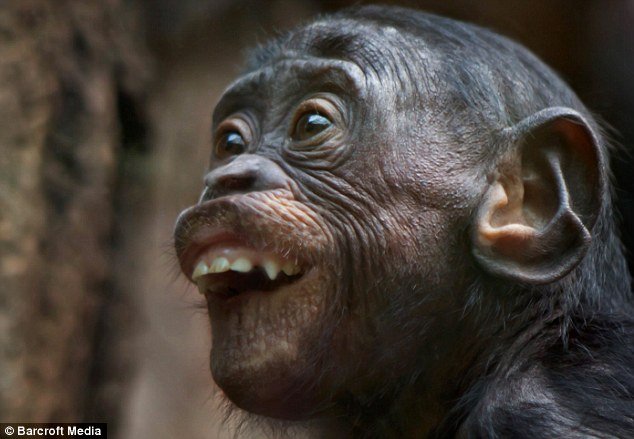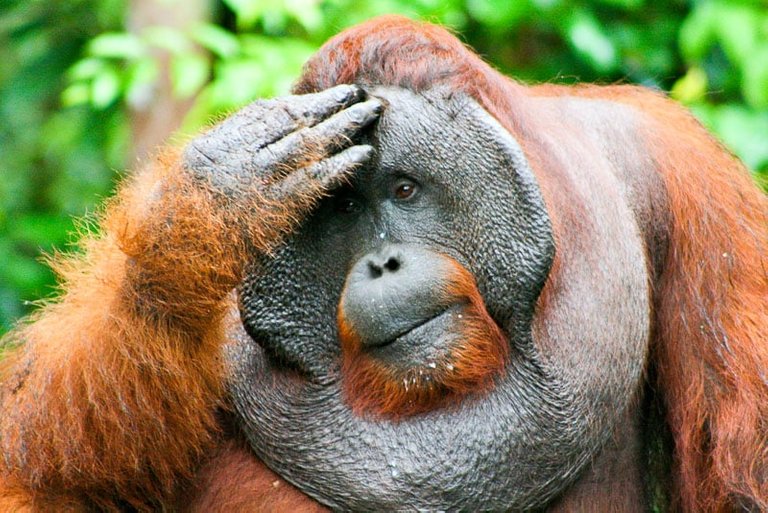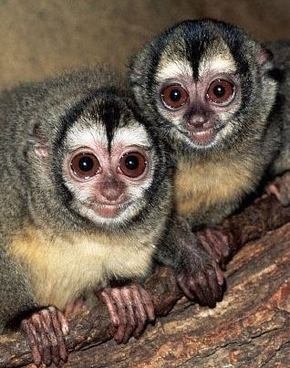More than two hundred years ago, monkeys and apes were classified as bats. Although this now seems extraordinary, we have to keep in mind that very few Europeans had actually seen many monkeys and apes in the wild. Classifying animals, deciding which kinds of animals are related to one another, is based mainly on the study of skeletons and skins kept in museums. If you look into the mouths of monkeys and apes, their teeth are very similar to those of bats and insectivores, such as shrews, moles and hedgehogs.

Now, however, monkeys and apes are put in a separate group, together with lemurs. This group is called the primates, from the Latin word meaning 'first'. The reason for calling them by this name is that they have a brain of the first rank. In other words, they are the most intelligent of all animals. We human beings are also classified with monkeys and apes.
The lemurs (the loris, tarsier and potto are all lemurs) are sometimes called half-monkeys because they are only halfway to being monkeys. They are, for example, not as intelligent. Monkeys and apes, on the other hand, are so very like us that it is not hard to think of the almost as cousins. This is because they, like us, have large brains. And, like us, they use their forelimbs as hands. Monkeys, apes and humans can think and can use tools. Although sea otters and some birds use stones or sticks as tools, it is believed that primates use tools for more varied tasks.
Food for primates:
The first primates to appear on earth almost certainly ate insects. They also ate leaves and fruit. There are some kinds of monkeys that eat nothing but leaves. Even the mighty Gorilla, at 1.7m, the largest of the man-like apes, eats only vegetation. The Chimpanzee is smaller than the Gorilla, reaching a height of about 1.5m. It is the most human-looking of the primates. Although it eats mainly fruit, it will also eat vegetables. It has been seen to eat insects and also kill and eat small animals such as birds, and even small monkeys.
The mountain gorilla of West Africa is the largest of the apes. Although larger than man, and stronger, it eats only plant food and is remarkably peaceful:

Chimpanzees often use tools. They will use sticks to get honey from a comb, or to dig ants or termites form their nests:

The bearded face of an old male Orangutan has swelling on the throat and face covered with small warts. Orangs spend their days swinging through trees on their long arms, feeding on fruits:

The long, sensitive fingers that many primates have are clearly visible in this group of Douroucouli or owl monkeys. They also have the large, prominent eyes characteristics of so many animals that hunt and feed at night:

When the Proboscis monkey or Borneo is alarmed or excited, it inflates its large fleshy nose with air - perhaps to make itself look threatening.
Resources:
Monkeys




Your content has been voted as a part of Encouragement program. Keep up the good work!
Use Ecency daily to boost your growth on platform!
Support Ecency
Vote for new Proposal
Delegate HP and earn more